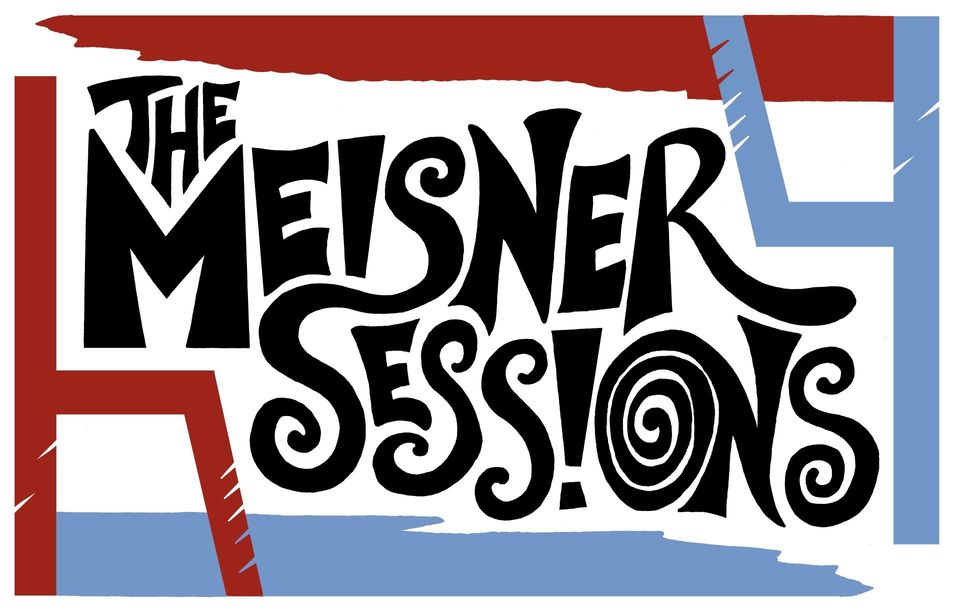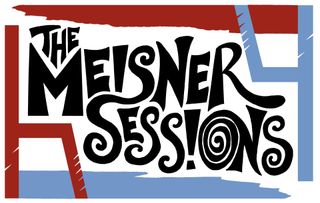Impulses
- By Martin Hobbs
- •
- 22 Oct, 2018
- •
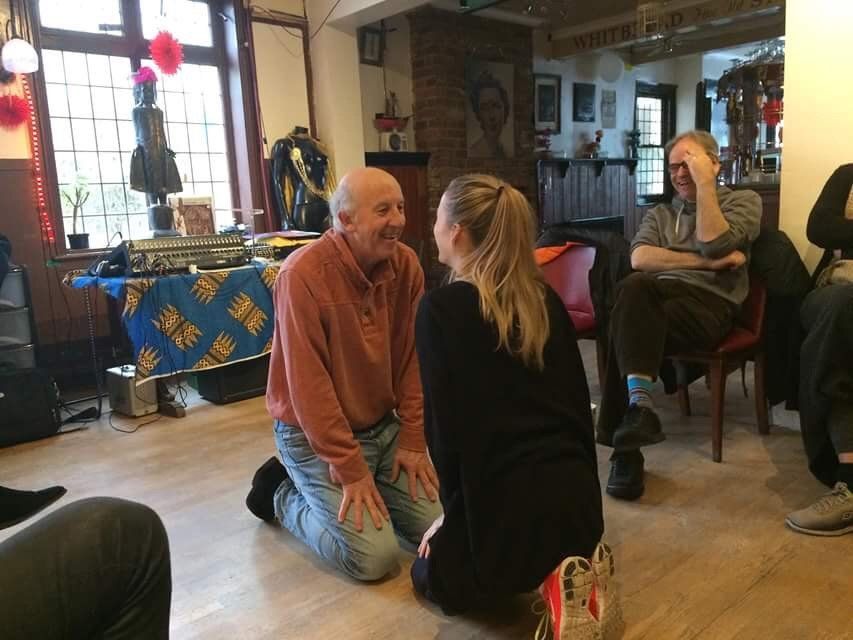
We often talk about impulses in Meisner. And two issues in particular arise - how do I become more impulsive? And how can I tell an impulse from an idea?
Impulses want to release themselves all the time. The only way to stop ourselves acting on our impulses is to physically prevent ourselves from doing so.
Think about a child who has been told not to cry, how they strain every muscle in their faces and bodies to try to stop it. Or when you stifle a laugh because it is inappropriate, how physically hard it is. Opposing muscles must be used to stop ourselves acting on impulse. Unfortunately for our acting, the process of socialisation has made this an unconscious and habitual response.
So, the only way to become more impulsive is to become conscious of the habitual responses to certain triggers, and to learn to trust yourself to let go more.
How can we tell an impulse from an idea?
An impulse is a response to an outside stimulus. In Meisner, this is usually our partner in the exercise. Most crucially, it doesn't come from you, whereas an idea does.
The difficulty comes when we sit on an impulse. Because we have been socialised not to act on our impulses, then we don't always express it straight away, instead it can become an idea and it can sit around waiting to be expressed.
There are two responses that can help us in this situation - put our attention on our partners, and move on, or act on the idea and then move on.
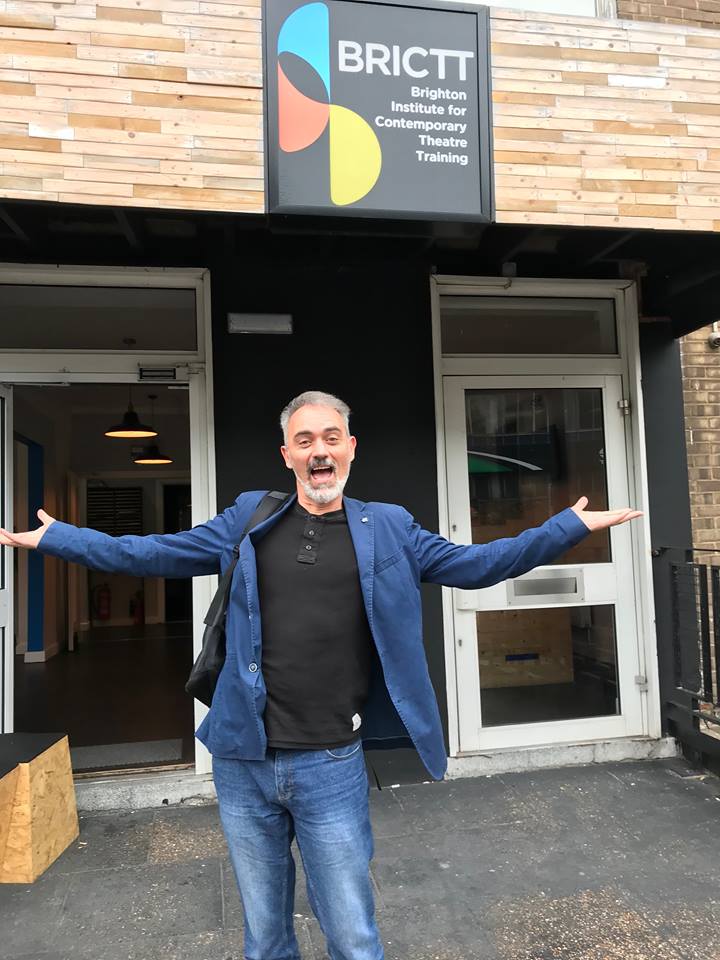
This week concluded my first year of teaching at Graduate and Post-Graduate level, having been invited to write and teach Meisner for BRICTT and the University of Chichester. It also sees the confirmation for my second year at UofC with increased hours, and other exciting teaching opportunities that I am unable to talk about just yet. Finally, this year has seen me undertake a PGCERT to become a Fellow of the Higher Education Association, with another year left until completion.
So,
I thought it would be good for me to write this blog about my
experiences.
Although
I have been teaching Meisner for over 10 years, my experience of
teaching in a formal institution has been limited to short courses
and one-off workshops, so, it was a quite an exciting prospect to
write and teach an entire course. Several, in fact. And it hasn’t
been limited to Meisner, I have taught the History of Screen Acting,
The Factual Actor, and at Post Grad - Analysis, Practice and
Technique.
The
learning curve has been steep, but the knowledge and skills developed
on the PGCERT have helped me develop these courses and instruct the
students. The first lecture I delivered was nerve wracking, but not
as scary as the first night of a play. Once I realised that, I became
much more confident in my ability to deliver the course material.
The
theory that I have been studying on the PGCERT, and the ethos of
self-reflection and experimentation with teaching styles, have been
truly exciting and given me lots of ideas on new ways to deliver
Meisner content and assist students with blocks that they may
encounter.
One
particular concept - the idea of framing has led to me introducing
additional steps in the Script Reading process, something that has
often been a big block in Meisner actors’ progress in developing
their technique. The needs of my students vary enormously from the
drama school students, university students, and the adult learners in
my drop in classes. This has been interesting to explore, and
discoveries in one set of students, has led to improvements in my
teaching of others. My drop-ins, as always are my labs where I am
able to be most radical in my approaches. I often trial an approach
first in these classes, which I hope make them exciting to attend,
and so I hope you can appreciate that we are all on a journey of
discovering the technique, and I am getting as much out of the
classes as you.
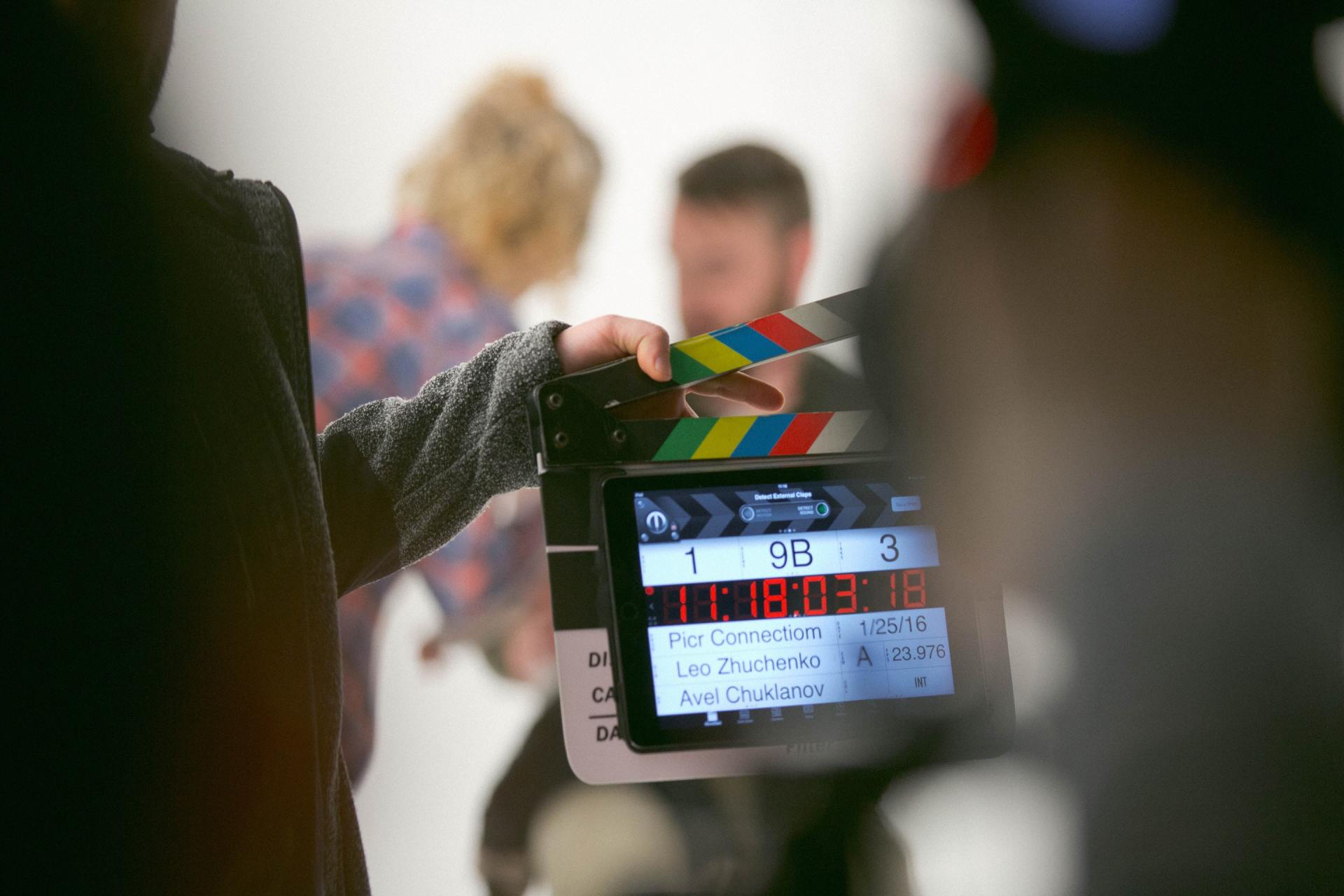
It's a new year, the dark yawning gulf of January is upon us, we have plenty of time and an urge to get started with things. The trick is to find the balance between pushing ourselves and holding firm with our ambitions for the new year, but also remaining kind to ourselves in the process.
Our Meisner practice is similar - we want to improve our practice and stretch our emotional boundaries into deeper territory, but we also need to keep ourselves both safe, and open to all possibilities. I suppose my only answer to the dilemma is to go into my work determined to be as open as I can be, to give into my impulses as much as I can, and be ready for unexpected and the uncomfortable. And a good place to start is to feel both the fear and the excitement of the exercise from the moment I step up there.
So, if you feel like getting some work done in this new year, why not come along to one of our weekly Meisner Workouts that run every Tuesday from 7-9pm at BRICTT, New England Street, Brighton.

Our link with BRICTT has brought with it a new source of attendees, straight from the Drama school with all their fresh energy and the class has found anew core from which to grow. We have seen Scott Williams & Kate Maravan for some Masterclasses, and Steel, and Melody and Dominique ready to host classes as well. I am now teaching Meisner for the University of Chichester and for BRICTT increasing the profile of Meisner on the south coast. And Emma has been busy rejigging the social media and website to keep our name in people’s minds. So, all in all, a great year with more projects planned for the next one.
| A big thank you to everyone who has attended our classes and workshops this year. We wish you a wonderful Christmas and a very happy New Year. Martin Hobbs |

As the Christmas season approaches many actors and performers will be finding work in Pantomimes and Christmas shows. What they have in common, like much of the work that is directed at children, is that the characters and performances are 'larger than life'.
In our Meisner practice we spend so much of our time looking to respond truthfully, that we can mistake that to mean natural, or small, but it doesn't have to be.When the work is rooted in the truth, whether it is large or small is irrelevant. Just as in life, where people are more or less demonstrative, so we can give ourselves the permission to be bigger 'characters', we can give ourselves the permission to have larger responses.
However, there are times when we may choose not to be truthful; much of the comedy in Pantomime (and other forms of exaggerated performance) comes from the obvious dissonance between the characters' responses and the actual truth of the characters feelings. When we see the Dame showing us that they are crying by wailing inconsolably and rubbing their eyes, we know they aren't really upset they are just 'being dramatic' and that is funny. If it helps, in those incidents you have no need to worry about 'being truthful' because the character isn't being truthful, the truth of the situation is that the character is being manipulative.
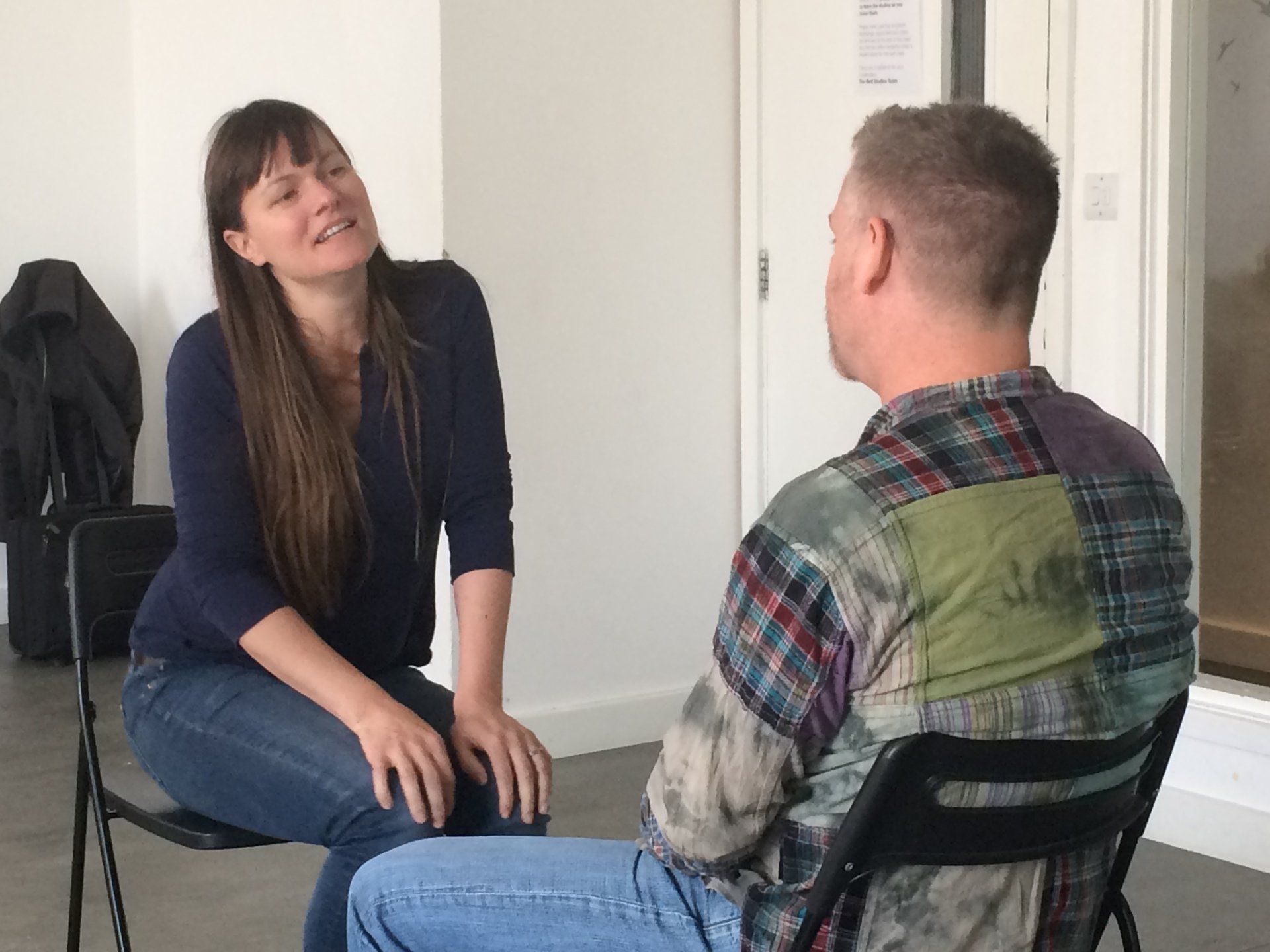
“Practice makes
perfect!” So we were always told, but I don't believe that just
any old practice will do, it needs to be good practice. But what is
good practice in Meisner?
For me, good practice
is committing to taking my hands off the wheel, allowing an exercise
to take me to uncomfortable territory. The more experience I gain of
the uncomfortable places, the less frightening and uncomfortable they
will be.
This applies to the
whole process of acting – the workshops, the repetition, learning
new techniques, being in rehearsals and being in front of an
audience.
But it is also about
where the practice takes place. It needs to be in front of an
audience (even if that is just your director). And it needs to be in
a safe and supportive environment. Particularly for Meisner, where
the main muscle we are developing is our confidence in letting go of
control.
For me Meisner and
becoming a good actor has all been about improving my confidence,
whether that's just been about performing or my confidence to being
fully open and present to all my emotional ranges. When I am in a
class I try to be as open as I can to the other actor and try and put
as much of my attention on them as possible and to allow as many of
my impulses to come out. Now some of those impulses I'm going to
find quite uncomfortable so for me it's going to take courage to go
to those places. To help me do that I need a safe environment to
practice.
As a teacher, I do my
best to create that safe space, firstly by stressing my two rules -
‘Don’t harm your partner! You pay for what you break!’
Secondly, by giving the actors permission to stop at any moment by
looking at me and asking for the exercise to stop. All the while, I
keep my awareness open to any possible harm that may happen and stay
ready to stop the exercise should it look unbalanced or too
explosive. And finally, by cultivating a non-judgemental atmosphere
of acceptance and trust. In this environment, the actors can grow at
their own pace, and in their own unique ways.
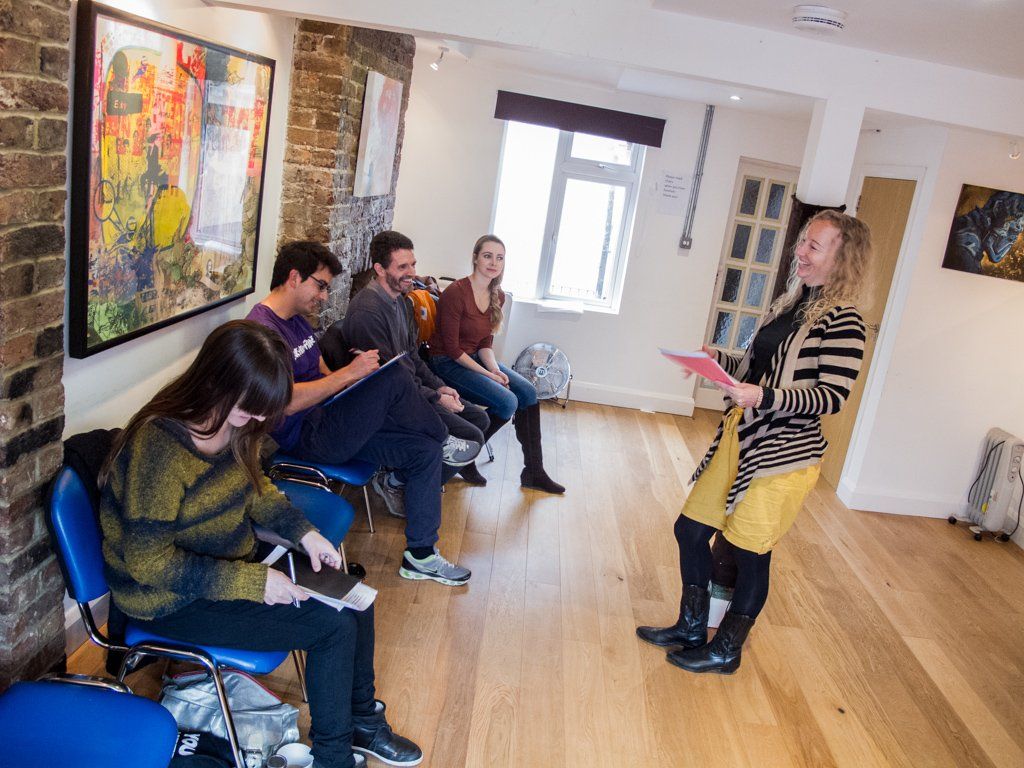
This week, I have been teaching script work and was reminded how I have changed the way I go about this. In my experience, working with scripts has always been the major sticking point for people, and the more experienced the actor, the harder they find it.
There are a number of reasons for this: Firstly, it involves sight reading - and a very strict and specific form of sight reading which is technically difficult to master. Add to that the difficulty people have reading other people's words and the whole affair can become very intimidating.
Secondly, the technique starts to look a lot like acting, and that triggers people's anxieties like no other. People's temptation to perform is at its greatest, as is their fear of looking like a bad actor. Getting an actor to let go of those an anxieties, to dare to be boring or incomprehensible, and to trust the technique is a huge ask.
Lastly, this exercise is like no other script class an actor will have experienced, in fact what we ask them to do is completely at odds with most of the teaching they have received throughout their education. And this is an important fact to be aware of.
The reading of the script, at it's base level should be as close to the experience of a repetition exercise as possible, and that was my starting point for adapting the exercise. (Prompted, I must say, by some great students who were really struggling, but were full of insight as to why that was so).
So, now, when I teach this for the first time, I ask the actors to start with ordinary repetition and then for the person with the first line to grab a few words from the page, look their partner in the eyes and then speak them. The words become the repeated phrase, just like a call in the repetition exercise. The other actor repeats the words and then they both keep repeating it until the person whose line it is grabs some more words and makes a new call.
If the words can be personalised (they contain an 'I', or 'you', or 'me', etc) then the second actor (the other one than the one whose line it is) should attempt this. I have found this to be more affective, but some students can struggle with the mental gymnastics this requires.
Other advice for running this exercise - reassure the actors that it's not about their technical ability, rather it is about learning to sustain the emotional connection between the actors whilst using words from a script. Keep reminding them to look up from their scripts if they are searching ahead for their next words. Advise them smaller sections of text are better to repeat, don't be afraid to break a sentence into small chunks, particularly as the other actor has to remember what to repeat.
I have found this to be a very popular and enjoyable introduction to text. Many students who have previously struggled with a line by line read through, have found this liberating. And it has helped actors see that there isn't just one right way to read a line. In fact, because this is far closer to the repetition exercise that they have already become familiar with, they are far more likely to let go of control and allow the script to 'do' them.
I'm sure I'm not the only person to have tried this, but in case you haven't, I heartily recommend it.
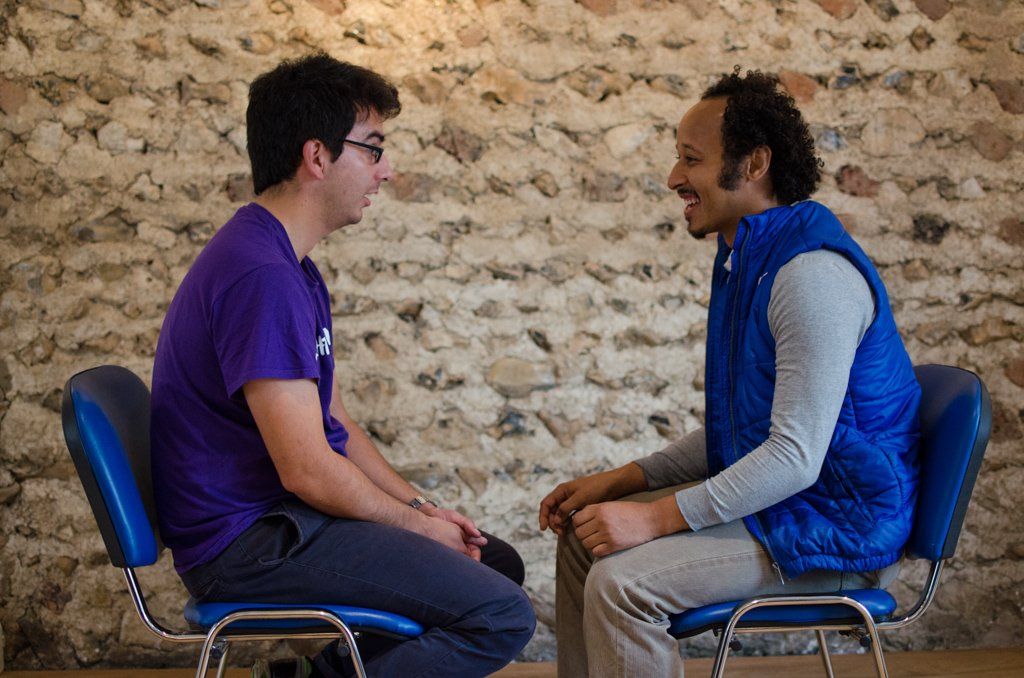
And there are a lot of things in acting that we can let go of - there are the obvious ones: being interesting, being believable, worries, and self-consciousness. But the practice demands much more challenging things, particularly letting go of control.
Anyone who has been to one of my classes would have heard me mention this on many occasions. I am firmly of the belief that we do our best work when we get out of the way of our acting. The feeling can be as strong as if we had become possessed by the words in the script, almost as if they were a summoning spell.
But working with my actors over the past few weeks, I have also become aware that Meisner can be about play - about letting go of the rules sometimes, letting go of what we are good at - our usual hangouts when we are performing, but also allowing ourselves to go play with those places when the impulse takes us there.
I have seen many Meisner actors approach their work with a seriousness and dedication to do the work that can actually block their creative approach. So you are doing a script and you suddenly feel like channeling Henry Fonda with the lines - don't suppress that impulse, allow it and play with it, just remember to let it pass and let it go again.
All things are possible (remembering our rules to not hurt our partners, and to pay for what we break), Meisner means freedom, it means play, it means allowing, not suppressing, but it also means to not cling on to those moments once they have come.
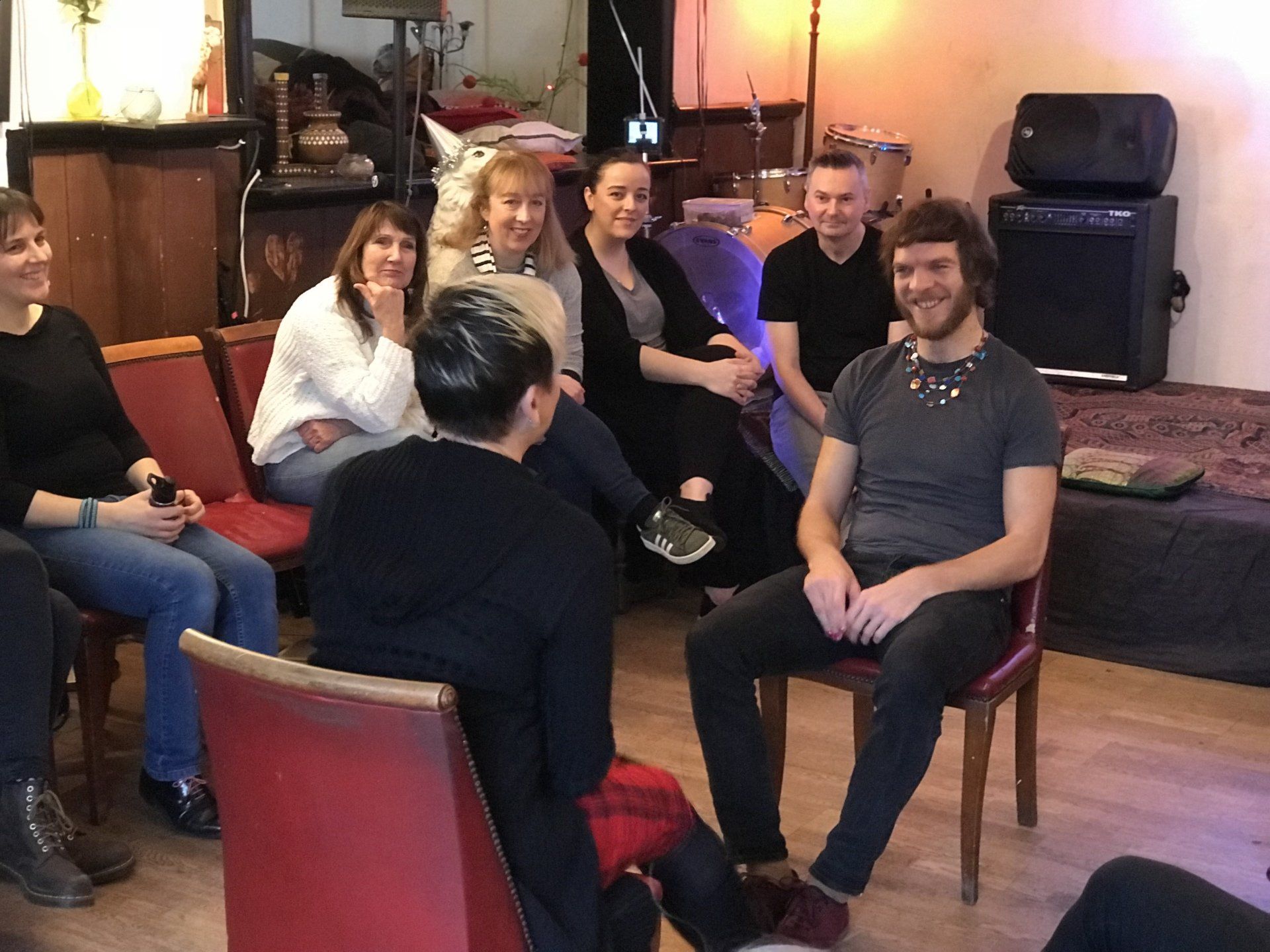
For years, I tried so hard to act. Really! I bored myself with my efforts. But then I found Meisner. And I discovered that when I am in the moment, when I am free, I am filled with joy. I may have to feel some hard emotions, but the process is liberating, and the moment to moment nature of the feelings is manageable ‘one moment at a time...’ as the old adage suggested.
My head overthinks. It tires easily with the weight of future expectation. Many is the time when I have known that I have a body of work to do and I am exhausted by even the thought of it. How many times have I rolled up to teach a class with a reluctance and apprehension of the work that will be required and yet only moments after starting the first exercise I am absorbed, I am laughing and crying and raging. Everything is forgotten. Only the moment exists. And what a truly terrifying, electrifying and energising moment it is. When I finish the class I am on top of the world.
For our job we get to LIVE! How many others can say that they get paid to do that. What a privilege!
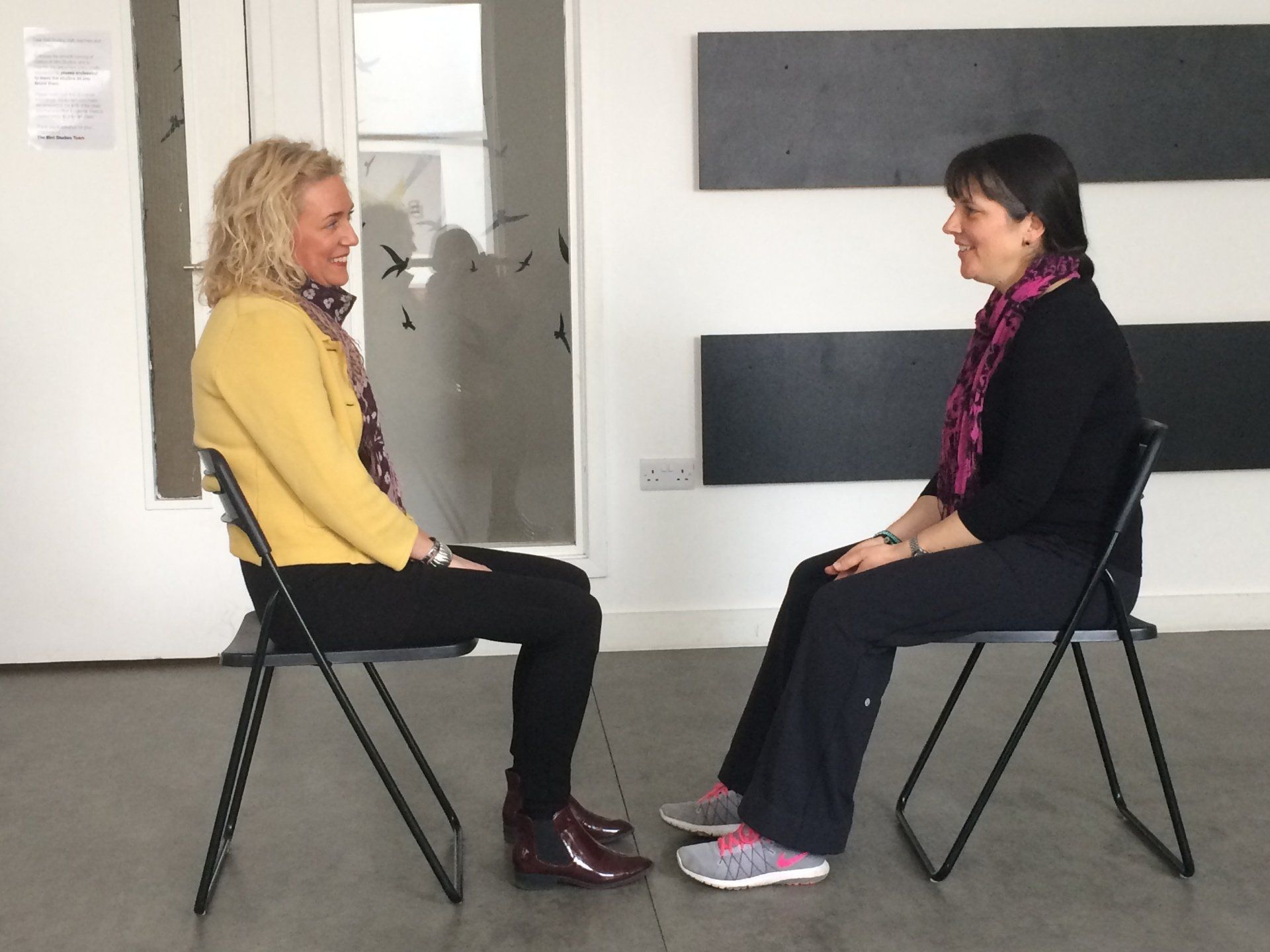
As actors we've all been in the situation where a director has turned round to us and said “Be more in the moment”. It's a discussion that actors have amongst themselves all the time. But what exactly does that mean?
Well for me, one of the most defining characteristics of acting in the moment is that there is no narrative. It's far more comfortable to think that there is a story or a reason behind what we are doing rather than just putting our attention on the other actor and allowing ourselves to respond fully in that moment. A narrative also limits our possibilities. This can feel safe, but it is far less exciting for ourselves and our audiences.
In Meisner there is no narrative, there is only the moment. Yes, it is informed by that which came before it, but we can let go and concentrate on what is happening right here, right now and be truly connected. It is not our job as actors to worry about the narrative. Leave that to the script writer. Our job is only to be truthful.
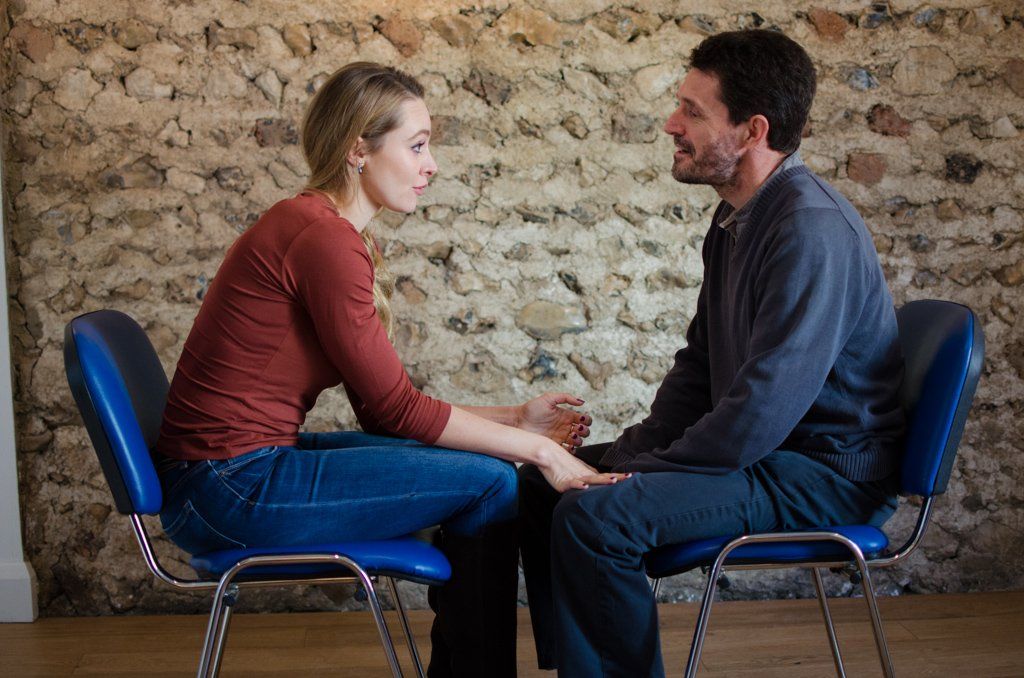
When we are on stage, or more specifically, when people are watching us, we can feel an awful pressure to perform, to be interesting, to get things right. We start to do stuff, fill in the gaps and the silence, we make choices.
But what we struggle to do is just 'be'. We are enough and what is most interesting to watch is truth. Instead of making choices, of doing, we allow.
We allow our responses to be fully expressed. We let go. We stop controlling the situation. This can be terrifying. It is against everything we have been taught. We could do anything, and more importantly, we don't know how the actors we are working with, and the audience who are watching us, will respond. What they will think of us, what they will do.
It takes time to trust that however they respond, we will survive it. Only by developing that trust can you have access to your full set of responses.
The only way to do that is to keep practising going into those uncomfortable spaces and getting more and more comfortable being there. So when you are on stage just stop doing so much, just allow things to happen to you and trust that it will be enough and that it will be interesting.
